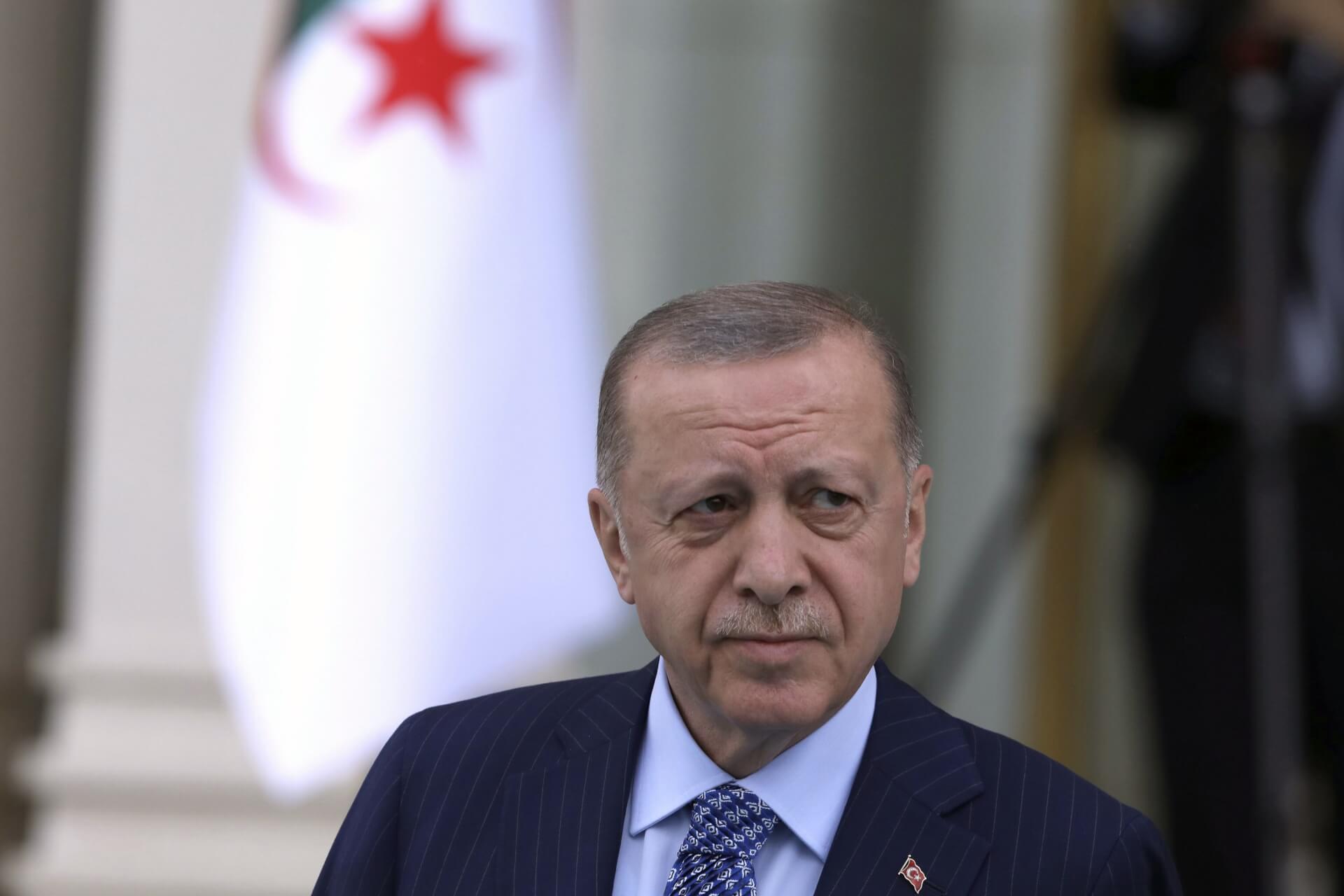Turkish President Recep Tayyip Erdoğan said on Wednesday that he is cancelling talks with Greece to resolve bilateral issues over violations of Turkey’s airspace by Greek warplanes. Erdoğan’s comments come just days after he condemned Greek Prime Minister Kyriakos Mitsotakis for trying to block Ankara’s purchase of F-16 fighter jets from the United States (US). It also follows Greece’s decision to allow the US to set up military bases in its territory, which Erdoğan claims is not about containing Russia as the US claims.
“You keep putting on shows for us with your planes,” Erdoğan said in a reference to the flight of Greek planes over Turkish islands in the Aegean Sea, and called on Greek authorities to pull themselves together because they do not seem to learn lessons from history.
“Don’t try to dance with Turkey. You’ll get tired and stuck on the road,” he said, adding that Ankara will “no longer [be] holding bilateral talks with them as Athens will “not see reason.”
Erdoğan was speaking to an assembly of lawmakers from his Justice and Development Party (AKP). He told them that the move is meant to show the world that Ankara’s foreign policy has “strong character.”
Last month, tensions escalated between Greece and Turkey after both sides accused each other of violating their respective airspaces. Turkey claimed that Greek warplanes had entered its airspace 30 times in three days. Athens, on the other hand, blamed Ankara’s jets for flying over its territory.
Erdoğan also said that he viewed Mitsotakis’ comments urging the US to halt the sale of F-16 fighter jets to Turkey as an insult. Earlier this month, Mitsotakis travelled to Washington to seek the acquisition of F-35 fighter jets and lobby against the US selling F-16s to Turkey. Mitsotakis told US lawmakers to take Turkey’s aggression into account before deciding to supply Ankara with defence equipment.
Until 1972, Turkey had no claims over any of Greece’s established territorial rights. By 2022, it is now illegally challenging the sovereignty of almost half of the Aegean Sea, including many Greek islands, and rejects the internationally recognized rights of Greece under UNCLOS. pic.twitter.com/kLPtwuunwy
— The Greek Analyst (@GreekAnalyst) June 1, 2022
Following Mitsotakis’ remarks, Erdoğan said the Greek PM had violated an agreement reached last year to not let third countries come between Turkey and Greece. He said that Mitsotakis “no longer exists for me” and asserted that he will not meet the Greek leader, declaring, “I don’t accept any such meeting with him anymore because we walk on the same path with honourable politicians who have character and who keep their promises.”
Erdoğan has also been angered by the US’ decision to establish nine military bases in Greece against Russia. Turkish politician Devlet Bahçeli said earlier this week that US bases pose a direct threat to Turkey. He accused the US of using Greece as a pawn and warned Athens that it is “playing with fire” by allowing the presence of US soldiers.
In fact, Washington and Athens signed a five-year military deal during Mitsotakis’ visit to improve military and defence cooperation.
Erdogan says he doesn’t believe that 9 American military bases in Greece had been established against Russia. “They are lying” he says.
— Ragıp Soylu (@ragipsoylu) May 29, 2022
To Mitsotakis, “we are friends to those who show friendship to us. We also do what’s necessary to counter those who view us enemies”
Erdoğan’s decision to cancel talks was condemned by Germany. Chancellor Olaf Scholz remarked that Turkey’s aggression has prevented the North Atlantic Treaty Organization (NATO) from standing together and called on Ankara to “refrain from provocations.” Scholz blamed Turkey for “invading Greek airspace and flying over Greek islands” and said such moves are counterproductive to the alliance’s unity. He thus urged Ankara to continue talks with Athens.
After over five years, Turkey and Greece set aside differences and resumed talks in 2020 to address their disputes over the Mediterranean and North Cyprus.
Turkey and Greece have been at odds for decades over control of the Aegean and Mediterranean seas, which have vast energy reserves. The dispute involves a complex array of issues such as the ownership of territorial waters and airspace, including the question of Exclusive Economic Zones (EEZ). Both countries have dispatched warships to the Aegean Sea and violated the other side’s airspace over the EEZ dispute. Furthermore, Turkey has refused to become a signatory of the United Nations Convention of the Law of the Sea (UNCLOS), which regulates the maritime rights of countries.
Another point of contention in bilateral relations relates to Cyprus. The island nation is divided into the internationally recognised Republic of Cyprus in the south and Northern Cyprus, which is only recognised by Ankara. Turkey occupied the island in 1974 and has tried to expand its maritime claims using the borders of Northern Cyprus.
Apart from its dispute with Greece, Turkey has also recently escalated tensions with fellow North Atlantic Treaty Organization (NATO) members Finland and Sweden by rejecting their bid to join the alliance in the wake of Russia’s invasion of Ukraine. Ankara has accused Helsinki and Stockholm of harbouring Kurdish “terrorists” and vowed to stall their entry into NATO unless the Nordic countries extradite Kurdish militants to Turkey.

